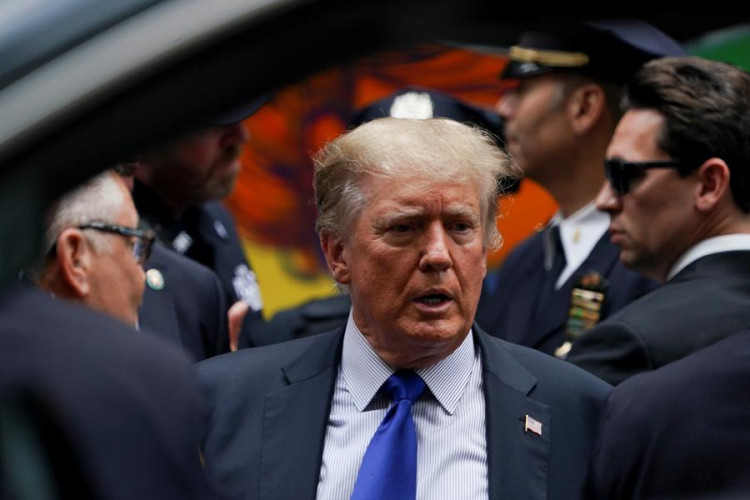In a significant development, a grand jury in Georgia has returned 10 indictments related to the 2020 election probe. The focus of this investigation has been former President Donald Trump's efforts to overturn the 2020 election results in the state. The Fulton County District Attorney handed the indictments to the clerk, which were then presented to Fulton County Superior Court Judge Robert McBurney.
The grand jury's decision came after a day of testimony from witnesses, shedding light on the election subversion investigation into Trump. This testimony was marked by a brief appearance of a list of criminal charges against the former president on a county website, which was later disavowed by prosecutors.
The process faced a hiccup when Reuters reported on a document listing criminal charges against Trump, including state racketeering counts, conspiracy to commit false statements, and solicitation of violation of oath by a public officer. This document was quickly taken down, and a spokesperson for Fulton County District Attorney Fani Willis labeled the report of charges as "inaccurate." This incident was seized upon by Trump's legal team, who questioned the integrity of the investigation.
The charges presented are the culmination of a two-and-a-half-year investigation led by Fani Willis. Anthony Michael Kreis, a Georgia State University Assistant Professor of Law, commented on the complexity of the case, emphasizing the difference in interests between this case and others. He stated that while there are overlapping themes and narratives in evidence, Willis's primary interest is to vindicate the rights of Georgians.
The grand jury's role is not to determine guilt but to decide whether there's enough evidence for a case to go to trial. Kreis highlighted the low burden of proof required for a grand jury indictment, noting that the process heavily favors the prosecution.
Several politicians, including former Democratic state Sen. Jen Jordan, former Democratic state Rep. Bee Nguyen, and Gabriel Sterling, a top official in the secretary of state's office, were seen at the Fulton County Courthouse, presumably to testify. Both Nguyen and Jordan had attended legislative hearings in December 2020, where Trump's attorney Rudy Giuliani and others made false claims of widespread election fraud in Georgia.
The investigation was prompted by a recording of a phone call in which Trump suggested to Georgia Secretary of State Brad Raffensperger that he could help "find" the votes Trump needed to beat Biden. Trump has consistently defended the call, describing it as "perfect."
As the legal proceedings unfold, Trump faces mounting legal challenges. He is set to go to trial in New York in March on charges related to hush-money payments made during the 2016 presidential campaign. Another trial is scheduled for May on federal charges related to his handling of classified documents.
The recent indictments in Georgia add another layer to the former president's legal woes, and the nation watches closely as the case progresses.





